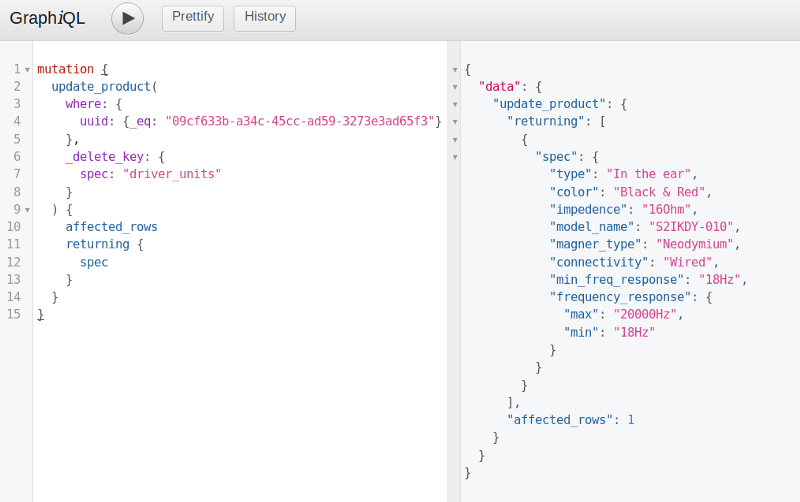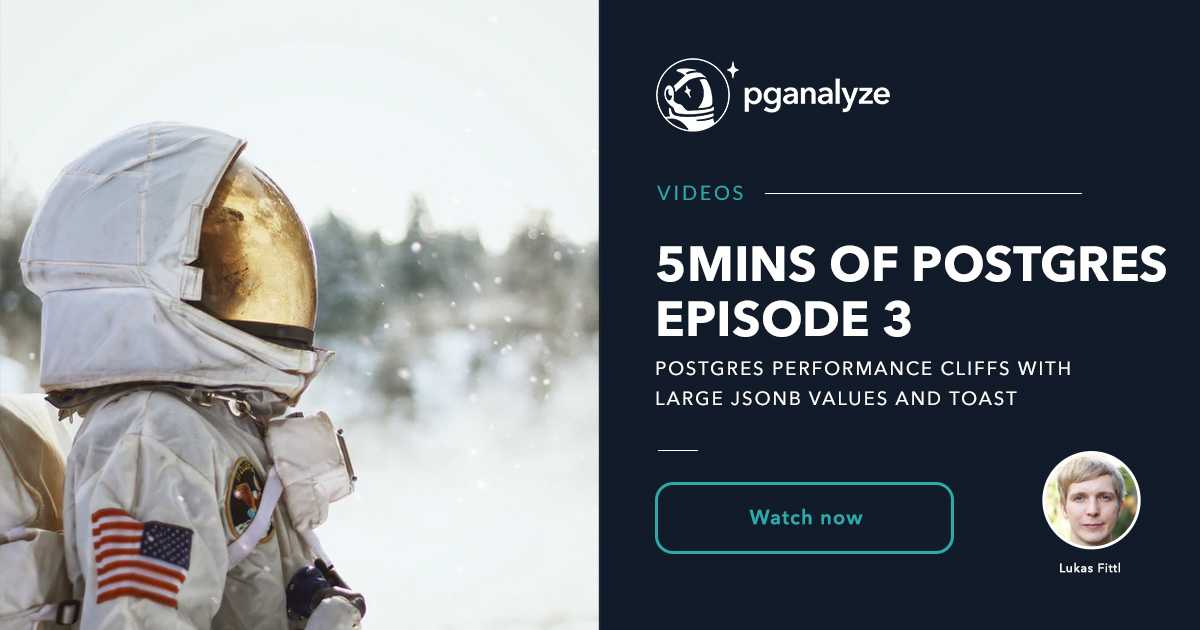

I only wanted to update the random_number part of my JSON.


I may be doing this wrong, but I couldn’t figure out a better way. The less obvious change is the explicit casting to JSONB and then back to JSON. However, it differs in two ways.įirstly it operates against the public.test_json table. This works because when concatenating two jsonb values, existing keys will be overwritten.
POSTGRES JSONB QUERY PERFORMANCE CODE
SELECT * FROM public.test_json WHERE id = trunc(random() * 1000000):: int + 1 ĬOMMIT Code language: SQL (Structured Query Language) ( sql ) This means that json allows storing JSON data that is not strictly conforming to the JSON specification, while jsonb enforces stricter rules and rejects any non-conforming data.Īs best I can tell, JSON that is not strictly conforming means: // strict - everything is quoted: There are well known techniques for speeding up the queries, like caching or read replicas. However, jsonb requires more processing time to insert or update data compared to json.Īnother difference is that jsonb values are always well-formed JSON, while json values can be any text that is a valid JSON object or array. PostgreSQL database queries are a common performance bottleneck for many reasons. This means that jsonb takes up less space and is (apparently) faster to query than json. PostgreSQL offers two types for storing JSON data: json and jsonb. JSONB can be a great fit, both for simplicity and performance. Json stores JSON data as text, while jsonb stores JSON data in a binary format. A new data type introduced in PostgreSQL 9.4 as a way to store a valid JSON elements in a. I am looking way improve update speed somewhere quarter of seconds. 5.9 Which One to Use? JSON vs JSONB – Similarities and Differences Whenever, I need to remove items 1001, I have query like: Query 1: UPDATE table1 set value value - '1001' Query 2: UPDATE table1 set value value - '1001' WHERE value '1001' Query 2 takes about 2 seconds and Query 1 takes around 20 seconds.


 0 kommentar(er)
0 kommentar(er)
